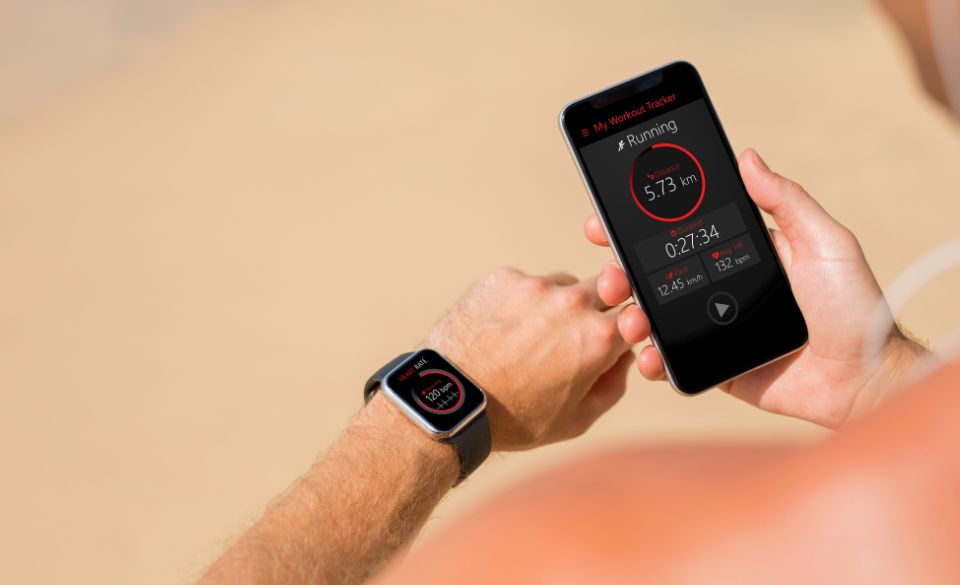
How Does Fitness Affect Heart Rate
Page Contents
Have you ever noticed how your heart rate seems to change as you progress in your fitness journey? Whether you’re an avid runner, a weightlifting pro, or a yoga enthusiast, exercise has a significant impact on your heart rate. But have you ever wondered how fitness affects your heart rate? In this blog post, we’ll explore the fascinating relationship between exercise and heart rate. We’ll delve into the science behind it and discuss the various ways that different fitness activities can influence your heart rate. So, let’s lace up our sneakers and dive into the heart-pumping world of fitness and heart rate!
Understanding the Basics: What Is Heart Rate?
Before we dive into the effects of fitness on heart rate, let’s quickly cover the basics. Your heart rate refers to the number of times your heart beats per minute. It’s a crucial indicator of your cardiovascular health and fitness level. Your heart rate can fluctuate based on various factors, including your age, physical activity, stress levels, and overall health.
How Fitness Affects Heart Rate
1. Immediate Changes: During Exercise
When you engage in physical activity, your body requires more oxygen to fuel your muscles. To meet this demand, your heart pumps faster, resulting in an increase in heart rate. This response is entirely normal and necessary for supplying your working muscles with the oxygen and nutrients they need to perform during exercise. The more intense your workout, the higher your heart rate will be.
2. Long-Term Adaptations: The Fitness Effect
Regular exercise doesn’t just impact your heart rate during workouts; it also leads to long-term adaptations that can influence your resting heart rate. Resting heart rate is the number of times your heart beats per minute when you’re at rest. With consistent exercise, your heart becomes more efficient at pumping blood, and your resting heart rate can decrease over time. This is a positive sign of improved cardiovascular fitness.
3. Endurance Training: The Athletic Heart
For individuals involved in endurance sports like running, swimming, or cycling, the heart can undergo specific changes known as “athlete’s heart.” Endurance training leads to an increase in the size of the heart’s left ventricle, which is responsible for pumping blood to the rest of the body. This enlargement allows the heart to pump more blood with each beat, ultimately leading to a lower resting heart rate and improved aerobic capacity.
4. High-Intensity Interval Training (HIIT): The Heart Rate Spike
High-Intensity Interval Training (HIIT) is a popular workout style that involves short bursts of intense exercise followed by brief rest periods. HIIT can lead to rapid increases in heart rate during the intense intervals and a relatively quick return to a lower heart rate during the recovery periods. This dynamic heart rate response can enhance cardiovascular fitness and calorie burning.
The Importance of Monitoring Heart Rate during Exercise
As we’ve seen, heart rate is a valuable indicator of your fitness level and workout intensity. Monitoring your heart rate during exercise can provide valuable insights into your cardiovascular health and help you make the most of your workouts.
1. Tracking Exercise Intensity: Stay in the Zone
Knowing your heart rate during exercise can help you gauge the intensity of your workouts. Many fitness enthusiasts use heart rate monitors to stay within specific target heart rate zones, which are determined based on their fitness goals. Whether you’re aiming for fat burning, cardiovascular improvement, or performance enhancement, staying in the right heart rate zone can maximize the benefits of your exercise routine.
2. Preventing Overtraining: Listen to Your Heart
Consistently monitoring your heart rate can also help prevent overtraining, which occurs when you push your body beyond its ability to recover. An excessively high heart rate during exercise or a consistently elevated resting heart rate may be signs that you need to take a break and allow your body to recover fully.
3. Tracking Progress: Heart Rate Trends
By recording your heart rate during various workouts over time, you can track your fitness progress. As your cardiovascular health improves, you may notice changes in your heart rate response during exercise, such as a faster recovery time or a decrease in your resting heart rate.
4. Identifying Abnormalities: Listen to Your Body
Monitoring your heart rate can also help you identify any abnormal responses during exercise. If you experience an unusually high or irregular heart rate, it’s essential to consult a healthcare professional to rule out any underlying cardiovascular issues.
The Versatility of Heart Rate Monitoring
In today’s digital age, heart rate monitoring has become more accessible than ever. Various wearable devices, such as fitness trackers and smartwatches, offer built-in heart rate sensors that allow you to track your heart rate during workouts and throughout the day. These devices provide real-time data and can sync with fitness apps on your smartphone, enabling you to analyze your heart rate trends over time.
1. Choosing the Right Device: Finding Your Fit
When selecting a heart rate monitoring device, consider your fitness goals and preferred activities. Some devices are optimized for specific sports, like running or swimming, while others offer general fitness tracking. Look for features that align with your needs, such as waterproofing, GPS, and compatibility with your smartphone or fitness apps.
2. Heart Rate Zones: Getting in Sync
Understanding heart rate zones is essential for effective heart rate monitoring. Different heart rate zones correspond to various exercise intensities and training goals. For instance, the “fat-burning zone” typically involves working out at a lower heart rate, while the “aerobic zone” targets cardiovascular improvement. Learn about these zones and tailor your workouts accordingly to achieve your desired fitness outcomes.
3. Listen to Your Body: Beyond the Numbers
While heart rate monitoring provides valuable data, it’s essential to remember that exercise is not solely about hitting specific heart rate targets. Your body is a complex system, and individual factors such as stress, hydration, and sleep can influence heart rate responses. Pay attention to how you feel during your workouts and use heart rate monitoring as a tool to complement your understanding of your body.
4. Variety is Key: Mix It Up
The effects of fitness on heart rate can vary depending on the type of exercise you engage in. Incorporating a variety of workouts into your routine can challenge your cardiovascular system in different ways. Mix cardio workouts, strength training, and flexibility exercises to experience a well-rounded fitness journey that keeps your heart rate pumping and your body thriving.
The Heart-Healthy Path Ahead
As you continue on your fitness journey, keep in mind that the relationship between fitness and heart rate is dynamic and unique to each individual. Embrace the changes and adaptations your body experiences with each workout. Remember, the goal isn’t just to reach a specific heart rate number but to improve your overall cardiovascular health, strength, and endurance.
Make heart-healthy choices both inside and outside the gym. Maintain a balanced diet, stay hydrated, manage stress, and prioritize quality sleep. These lifestyle factors play a significant role in supporting your heart’s health and overall fitness.
Celebrate every milestone, no matter how big or small, and remember that progress takes time. Each step forward, whether it’s a faster recovery rate or a few extra minutes in the gym, is a testament to your dedication and commitment to a healthier lifestyle.
So, let’s continue to lace up those sneakers, strap on those heart rate monitors, and embark on a heart-pumping adventure filled with joy, growth, and boundless possibilities.




